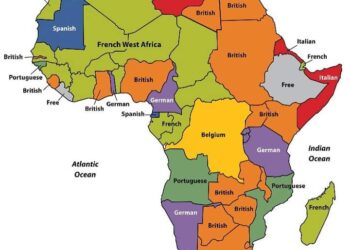Two non-governmental organisations, Hope Behind Bars Africa (HBBA), Flemer Project Initiative, have solicited the intervention of stakeholders in the Nigeria criminal justice system to utilize the opportunities presented by Access to Justice for 400 project to ensure speedy access to justice for indigent pre-trial detainees.
According to a statement made available to Blueprint on Tuesday, signed by Head, Legal Team of Flemer Project Initiative, Beatrice Osarieme and Executive Director, Hope Behind Bars Africa, Funke Adeoye, many Nigerians have no business being in correctional facilities in states across the federation, but have been adding to prison congestion as a result of mishandling of cases by lawyers, intervention by police, among other factors.
The statement reads: “The Access to Justice for 400 (formerly Justice for 1000) project was launched in August 2020, through a collaboration initiated by Flemer Project Initiative and Hope Behind Bars Africa, with support from Partners West Africa and the Hague Institute for Innovation of Law (HILL).
“The project set out to facilitate and seek speedy access to justice for indigent pre-trial detainees charged with minor offenses across various pre-trial detention centres in Nigeria.
“At the inception of the project, services of competent, young and vibrant volunteer lawyers were secured across various states, to provide legal services to indigent persons in correctional centers, under the supervision of their State Team Lead. The project also, employed the use of adequate technological aids to monitor the duration of each matter handled under the Access to Justice for 400 project.
“While it is not new that there have been several efforts from the government, non-governmental organisation and civil society group, to decongest the various custodial centres, the World Prison Brief, statistics reports that about 70% of the inmates in Nigeria’s Correctional Centres as of October 2021, are Pre-trial detainees. This reality prompted the initial launching of the Access to Justice for 400 project, and recently available data signifies the need to sustain the project beyond its initial proposed one-year duration.
“The project, which was originally planned to take off in Lagos, Edo, Kano, Kaduna, Nasarawa and FCT, got to a fine start, gaining more grounds in Lagos, Edo, Kano and Abuja. Over 200 indigent pre-trial detainees have been represented since the inception of the project in August 2020, and 154 number of cases have been completed with the percentage of female to male being 1 to 9.”
The statement further reads: “According to the Head Legal Team of Flemer Project Initiative, Ms. Beatrice Oserime, the project objective was to have 400 inmates represented within a year, but judicial activities in Nigeria have been marred with a myriad of challenges, such as the Covid-19 restrictions to gain access to correctional facilities, unfortunate destruction of court buildings, and the disruption of court sittings by hoodlums during the #EndSars protests in October, stalling several cases across some cities where the project was on-going.
“She also stated that the Judicial Staff Union of Nigeria (JUSUN) strike, which led to the closure of various courts in Nigeria for a period of about 3 months, also resulted in delay in attending to pending cases.
“Emmanuel Okorie, the Coordinator of Access to Justice Project for Hope Behind Bars Africa in Edo State, stated that during the course of the project, several cases were referred to the project office in Edo State by several magistrates, upon realization of the impact of Hope Behind Bars efforts at decongesting the Edo State correctional facilities.
“A total 78 (seventy-eight) cases have been concluded within the state and some pending, before the unfortunate incidence of the jail break reported in the Edo State Correctional facilities, which in turn slowed down the progress of these pending cases.”
“The Executive Director of Hope Behind Bars Africa, Ms. Funke Adeoye, stated that most of the cases, handled by volunteers’ lawyers in the project, had no business in the criminal justice system.
“She decried the frequent interference in civil cases by the Nigeria Police, despite rebukes by the courts and clear provisions of the law.
“According to her, “The Administration of Criminal Justice Act (ACJA) of 2015 excludes the Nigeria Police from civil disputes. Section 8(2) of the Act states that a suspect shall not be arrested merely on a civil wrong or breach of contract but this is not the case in reality.
“Adeoye also decried situations where persons with mental health challenges were sent to prison for offences like loitering when all they needed was medical care.
“The project, which is exclusively designed to benefit marginalised inmates charged with minor offences, is now entering its second year. The various organisations involved will be deepening the work in Kano, FCT and Nasarawa.
“We therefore urge all stakeholders in the Nigeria criminal justice system to utilize the opportunities presented by Access to Justice for 400” project to ensure speedy access to justice for indigent pre-trial detainees,” the groups added in the statement.




